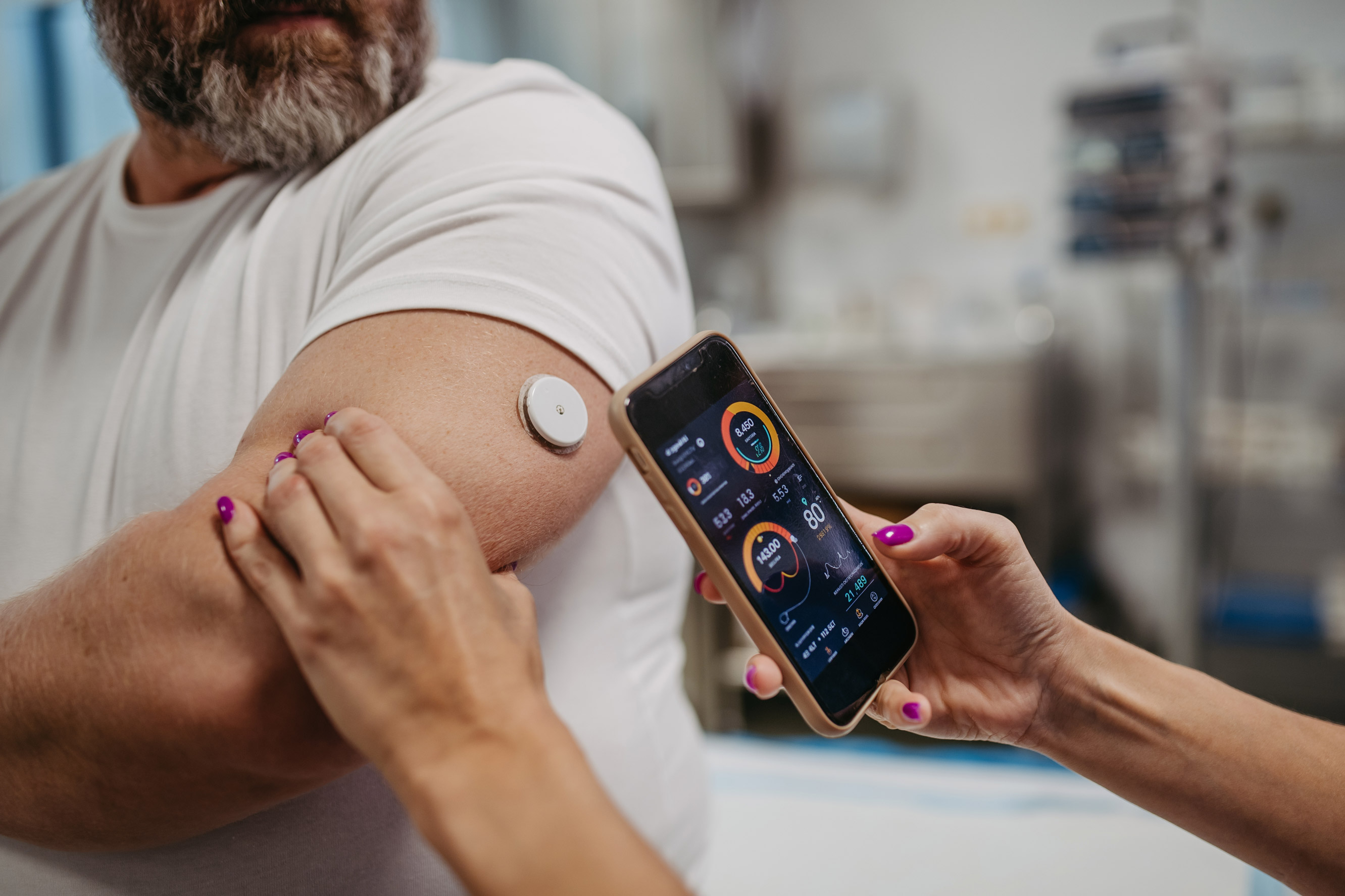Diabetes MSc

You are viewing Course summary
Course Summary
In December 2020, the World Health Organisation (WHO) stated that diabetes-related deaths increased by 70% globally between 2000 and 2019. Diabetes is a major cause of blindness, kidney failure, heart attacks, stroke and lower limb amputation.
In this MSc, you will acquire deep knowledge and comprehensive intellectual integrity on the different types of diabetes and associated complications, the pathophysiology and diagnosis, as well as understanding up-to-date therapeutic approaches. The course is suitable for healthcare professionals, researchers and intercalating medical students.
You will develop the skills required for literature searching, critical appraisal of scientific literature and translate that into evidence-based practice. We aim to develop your research and scientific writing skills so that you will be in a position to augment and expand your professional development.
The course culminates in the Research Dissertation, which will be assessed through your production of a research article written in the style of publishable scientific work and a short oral presentation. Options could include literature, data or laboratory-based projects, depending on research interests.
Successful completion of this MSc course can lead to a range of exciting career and research opportunities, including careers in biomedical or clinical research, medicine, physician associate, PhD study or teaching.
What you'llStudy
Our course investigates in detail the different types of diabetes and various complications. You will review current guidelines and their evidence base in the therapeutic management of diabetes, and explore potential new therapies. The course consists of taught modules and a research dissertation.
Module content:
-
The nature of research; scientific methods of enquiry, pure versus applied ways of problem solving. The building blocks of scientific research: types of research (analytical, descriptive, experimental, and qualitative), scientific parlance (hypothesis, concepts, operational definitions, and dependent/independent variables), sampling procedures, and measurement issues (reliability and validity)
-
Research and data collection methods: experimental research (developing hypotheses, variables, control, sample selection, design, validity); descriptive research (questionnaires, correlational studies); qualitative research and methods of obtaining qualitative data and analysing qualitative data
-
Critical appraisal of literature- primary and secondary literature.
-
Importance of evidence based medicine; identifying a topic area, devising specific questions, discovering what is already known (reviewing the literature), determining feasible ways to answer the questions, including consideration of medical and research ethics and confidentiality
Module aims:
The module aims to equip students with the skills required to source and critically analyse relevant research and to apply the theories of evidence based medicine to evaluate relevant concepts in medicine.
Module content:
Students will gain an appreciation of aspects of data collection and analysis through lectures , practicals and computer-based sessions covering:
- The sample – collection, transport, storage
- The assay – assay development, method validation, precision, accuracy, specificity, sensitivity
- Regulatory issues - quality control, SOPs, COSHH, risk assessments
- Analysis – recording, raw data presentation, statistical analysis using statistics software, summary data and statistical analysis presentation, reference values, interpretation.
Students will gain experience of a number techniques of relevance to their programme and may include:
- Gel electrophoresis & Western blotting
- Flow cytometry
- Molecular biology techniques (e.g. PCR)
- Immunoassays (e.g. ELISA)
- Histology & microscopy
- Culturing methods – cell culture, culturing bacteria
- Cell counting methods
Module aims:
The module aims to:
- Develop an understanding of the theories underpinning modern analytical and molecular techniques of relevance to the biomedical and molecular laboratory scientist.
- Develop a critical appreciation of the uses and limitations of a range of analytical and molecular techniques relevant to the biomedical and molecular sciences through practical experience.
- Develop skills in collection, analysis, presentation and interpretation of data.
Module content:
This module is focused on the precision medicine approach, looking systematically at a bigger picture of a patient journey from a presentation to NHS with first symptoms to the treatment protocol passing the diagnostic process.
Students will focus on diseases or elements of the pathology or system of relevance to their programme.
Module aims:
The module aims to provide students with an in-depth knowledge of concepts important to our understanding of patient journey in NHS process. The module will focus on the impact of diagnostical procedures on treatment protocol in different pathologies.
Module content:
- Overview of metabolism, introduction to Carbohydrate, lipid and protein metabolism.
- Metabolic regulation.
- Overview of the endocrine system and basic biological principles.
- Glucose transport systems.
- Glucose regulation in healthy individuals.
- Overview of diabetes – diagnosis, classifications.
- Type 1 diabetes - aetiology and epidemiology, cellular events, physiology, genetics.
- Type 2 diabetes – aetiology and epidemiology, cellular events, physiology, metabolic syndrome, genetics.
- Diabetes insipidus - aetiology and epidemiology, classification.
- Complications of type 1 and type 2 diabetes.
Module aims:
The module aims to give the students a deep understanding of the etiology, progression and complications of the different types of diabetes.
Module content:
Reviews current guidelines and their evidence base in the therapeutic management of diabetes, and explores potential new therapies. Specific areas may cover include:
- Insulin and insulin pump therapy including equipment
- Anti-diabetic drugs
- An understanding of clinical research in relation to therapeutics and diabetes to enable students to translate that understanding into good therapeutic management of diabetes
- A review of landmark trials in diabetes and their implications for drug management in relation to blood pressure control, blood lipid management, and anti-thrombotic therapy
- Drug treatment of diabetes complications: ketoacidosis; hypoglycemia; diabetic nephropathy; diabetic neuropathy; clinical depression
- Exercise and diet
- The importance and value of an integrated team approach to support diabetes management
Module aims:
The module aims to give the student a thorough understanding of the strategies available to treat the different types of diabetes and the evidence base available to support decision making.
Module content:
This module introduces the student to several assessments and consultation tools that are used in different medical specialties. The module will cover:
- How a diagnosis is made in the clinical setting
- The science and the art behind medical decision making, including clinical reasoning
- The principles of Clinical Audit and Quality Improvement are quality improvement processes that aims to improve patient experience and team performance in different medical specialties
Module aims:
The module aims to develop high standards in clinical assessment, to a level of best practice according to the available evidence base. Additionally, this module will enable the student to develop the knowledge and skills to evaluate the individual and team performance in clinical settings and compare it with the recommended standards.
Module content:
On completion of the taught modules, students will have developed their knowledge base and attained a high level of competence in the application, analysis and evaluation of theory and practice. This knowledge and critical skills will have been assessed in all previous assignments, thereby providing students with the opportunity to undertake a research project relevant to their taught programme of study. The dissertation subject will be agreed with an appropriate supervisor and the dissertation module leader (Dissertation Co-ordinator). The subject matter may be related to any area of relevance to the area of study.
Module aims:
1. To provide the student with an opportunity to investigate a research project of direct relevance to the programme of study and his/her personal interests.
2. To enable the student to draw on and contribute to the development of the growing body of knowledge in the broad biomedical, clinical and medical science fields.
3. To present the outcomes of the research performed in the form of a research article in a format ready for submission to a suitable journal and as an oral presentation
Module content:
- Overview of scientific research.
- Research and data collection methods.
- Ethics in research.
- Introduction to statistical analyses software (SPSS and/or other).
- Different types of data (nominal, ordinal, continuous [ratio and interval]) to determine an appropriate type of statistical test (parametric vs. nonparametric).
- Dependant and independent variables and interpretation of P value.
- Selection of appropriate statistical tests on the basis of sample distribution, data type, and study design.
- Data analysis for descriptive and experimental data
- Calculation of sample size and power.
- Interpretation of meta-analysis, survival analysis, hazard ratio, odd ratio and relative risk ratio.
- How to develop a research project.
Module aims:
- To expose students to the essential elements in the process of conducting sound scientific research.
- To develop students’ skills in the key aspects of data handling and statistical analysis in preparation for the planning and completion of the Research Dissertation.
All modules of the course will be delivered in person and a few sessions online for dissertation support. Regular support sessions will be held to supplement learning.
Teaching is primarily delivered by University academic staff. Specialist healthcare professionals and clinical researchers may also contribute to modules where appropriate.
Entry Requirements
2:2 honours degree
Applicants must hold an appropriate first degree with a minimum of 2:2 honours (e.g. in Medicine, Biomedical Science, Dietetics, Human Biology) or hold appropriate professional qualifications and be able to demonstrate suitable background knowledge and skills.
Applications are invited from:
- Those with related undergraduate degrees (e.g. Biomedical Science, Dietetics) or equivalent professional qualifications and background experience
- Junior doctors
- NHS staff
- International students with appropriate qualifications
- International doctors or healthcare professionals.
2:2 honours degree
Applicants must hold an appropriate first degree with a minimum of 2:2 honours (e.g. in Medicine, Biomedical Science, Dietetics, Human Biology) or hold appropriate professional qualifications and be able to demonstrate suitable background knowledge and skills.
Applications are invited from:
- Those with related undergraduate degrees (e.g. Biomedical Science, Dietetics) or equivalent professional qualifications and background experience
- Junior doctors
- NHS staff
- International students with appropriate qualifications
- International doctors or healthcare professionals.
English Language Requirements
For those who do not have IELTS or an acceptable in-country English language qualification, the University of Chester has developed its own online English language test which applicants can take for just £50.
For more information on our English Language requirements, please visit International Entry Requirements.
Fees and Funding
£8,505 For full course (2024/25). For part-time fees please follow the PGT fees link.
Guides to the fees for students who wish to commence postgraduate courses in the academic year 2024/25 are available to view on our Postgraduate Taught Programmes Fees page.
£14,750 per year (2024/25)
The tuition fees for international students studying Postgraduate programmes in 2024/25 are £14,750.
The University of Chester offers generous international and merit-based scholarships for postgraduate study, providing a significant reduction to the published headline tuition fee. You will automatically be considered for these scholarships when your application is reviewed, and any award given will be stated on your offer letter.
For more information, go to our International Fees, Scholarship and Finance section.
Irish Nationals living in the UK or ROI are treated as Home students for Tuition Fee Purposes.
Your course will involve additional costs not covered by your tuition fees. This may include books, printing, photocopying, educational stationery and related materials, specialist clothing, travel to placements, optional field trips and software. Compulsory field trips are covered by your tuition fees.
If you are living away from home during your time at university, you will need to cover costs such as accommodation, food, travel and bills.
The University of Chester supports fair access for students who may need additional support through a range of bursaries and scholarships.
Full details, as well as terms and conditions for all bursaries and scholarships can be found on the Fees & Finance section of our website.
Your Future Career
Job Prospects
Upon completion of the course, there are job opportunities in NHS Trusts, private health care organisations, industry (pharma/biotech companies) or research if a student wants to proceed for a PhD.
Careers service
The University has an award-winning Careers and Employability service which provides a variety of employability-enhancing experiences; through the curriculum, through employer contact, tailored group sessions, individual information, advice and guidance.
Careers and Employability aims to deliver a service which is inclusive, impartial, welcoming, informed and tailored to your personal goals and aspirations, to enable you to develop as an individual and contribute to the business and community in which you will live and work.
We are here to help you plan your future, make the most of your time at University and to enhance your employability. We provide access to part-time jobs, extra-curricular employability-enhancing workshops and offer practical one-to-one help with career planning, including help with CVs, applications and mock interviews. We also deliver group sessions on career planning within each course and we have a wide range of extensive information covering graduate jobs and postgraduate study.










